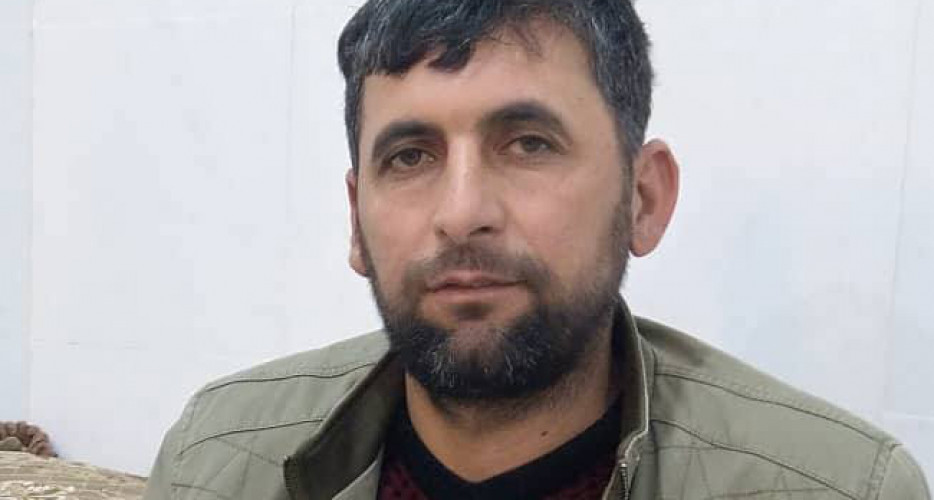
By Ferman Hamadamen
Saman Sidiq's surgery was complicated - he not only lost the chance to carry out his duty as a peshmerga but also lost the ability to use half of his body along with his tongue. Four years ago, Saman came back from the frontiers soaked in blood, wounded in the fight against the Islamic State (ISIS). The injury covered all his body, from his head down to his chest.
Preparing to battle ISIS in the village of Sultan Abdulla, Gwer front on 31 December 2014, ISIS shelled their car, killing a peshmerga and wounding another seven, but Saman's wound was the most severe of them all.
His commanders immediately transferred him to the Hospital of West Erbil. The doctors could successfully remove the shell fragments from his head, but he was in a coma for 21 days. He woke up paralysed, half of his body and tongue could no longer function. Such has been his condition ever since.
Saman was a builder before joining peshmerga. He joined the Kurdish forces in 2004, working as a builder at the same time. He used sign language to speak to us, telling us that he's been home now for four years.
Peregraf saw him in the village of Hasarok, now a neighbourhood in Erbil city.
Saman, 34, went through the ranks until he joined the Erbil Command. Despite the hardship, he does not have any regret. He said he would rejoin peshmerga if he could be cured. Like thousands of others, Saman is a victim of ISIS. They express their voice of discontent often as authorities do not seem to take enough care of them. Despite promises, they have not seen much.

Saman during treatment in the hospital
The General Secretary of the Ministry of Peshmerga, Jabar Yawar, told Peregraf that they lost 1,072 peshmerga in the battle, with 10,726 others wounded. 700 of which are sent abroad for treatment, funded through the ministry or allied countries. Some of them, he said, require constant treatment due to the severity of their injuries.
After splinters had been removed from his head, Saman was undergoing another surgery for his right eye, which had to be stopped due to his injuries. Since then, no one has even visited him.
Natural therapy seems to be working, as his paralysis appears to decline over time. However, he is still suffering from seizures and requires a certain expensive pill to keep him calm.
His wife, Gazang Ibrahim, said, "Since he has returned from the hospital, the Ministry of Peshmerga has not asked about him," she added, "They do not help, and we can hardly pay the expenses."

Saman as a Peshmarga during the fight against ISIS
Saman's monthly salary is 556 000 Iraqi dinars (around 450 USD). However, the family owns a house, which relieves them from the monthly rent some other wounded peshmergas suffer from.
"If he is not paid for a month, our life would be complicated," she said.
Saman has been married since 2005 and now has two sons and a daughter.
Since he cannot go out on his own, he only visits a small park outside his house. Saman is not alone, as three of his extended family are in peshmerga ranks. In fact, it has been his brother, Kamal Sidiq, Lt-Colonel, who accompanied Peregraf for reporting the case.
Some of ISIS victims suffer from psychological complications, as they can hardly reach sufficient medical care. The Ministry of Peshmerga has a department to approve or decline the request of expenditure for such cases. A doctor from that department, who asked to remain anonymous as he does not have a clearance to speak to the media, told Peregraf, "After our approval, it may take another four months to spend anything for the wounded, and the maximum expenditure for each patient is 750 000 IQD (around 600 USD)."

Saman (sitting down) with his colleagues during the fight against ISIS
The doctor suggested that ISIS victims need a special hospital, to avoid the complications of common cases, finding the government being negligible to that need. He confirmed that patients are not revisited after a surgery.
He also claimed that such a limited process has had a negative psychological impact on patients.
Gazang said, "His psychological condition has worsened. He is suffering, and we are suffering for him."